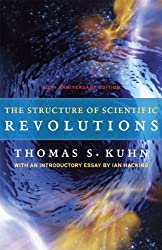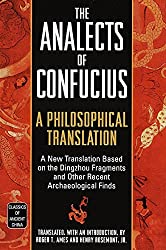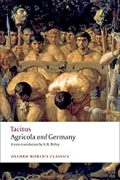
Rating: 8.2/10.
A classic book written in 1962 and a very influential book about the sociology of science. Kuhn describes how science goes through brief periods of revolutions (or paradigm shifts), with longer quieter periods of “normal science” in between. A “paradigm” is a shared set of views in a scientific community about the general framework of a theory, and what counts as a valid solution. With this framework in place, “normal science” can proceed rapidly without having to build everything up from first principles; it can investigate more esoteric phenomena, resolve residual issues in the theory, and apply it to new situations.
A revolution or paradigm shift begins with the observation of anomalies that can’t be explained in the old paradigm. Initially, anomalies are usual in science and the community attacks it with standard tools, but this becomes a crisis when all the standard methods have failed. At this point, a new paradigm emerges that elegantly fits all the anomalies, and opens up questions for investigation that nobody would’ve thought to ask before.
There is often an intermediate period when there are two competing paradigms, since the new theory is not fully fleshed out in the beginning and has its own flaws. The new theory reinterprets the existing facts in a new framework, like the picture that’s simultaneously a duck and a rabbit. It is not possible to resolve between paradigms by experiment, since they can disagree about what can be assumed as axioms and what counts as a proof. For example, Newton’s theory assumes gravity as a force, but it is nonsensical within the theory to ask why gravity exists and what causes gravity. As the new theory explains more and more phenomena, it gains support and the old one is eventually eliminated.
The author is a physicist and gives examples mostly from revolutions in physics, such as Copernicus, Newton, discovery of oxygen, electromagnetism, etc. I’m not familiar with many of the obsolete theories mentioned, but I can see that similar sociological patterns apply in linguistics, where the old theory of Chomskyan generative linguistics is slowly being replaced by usage-based cognitive linguistic theories. It doesn’t apply so much to the AI revolutions, which are more about solving difficult benchmarks (eg: playing go) rather than forming a theory to explain a set of observations. Anyways, the book is a hugely influential one, responsible for coining several terms, like “paradigm shift”.



